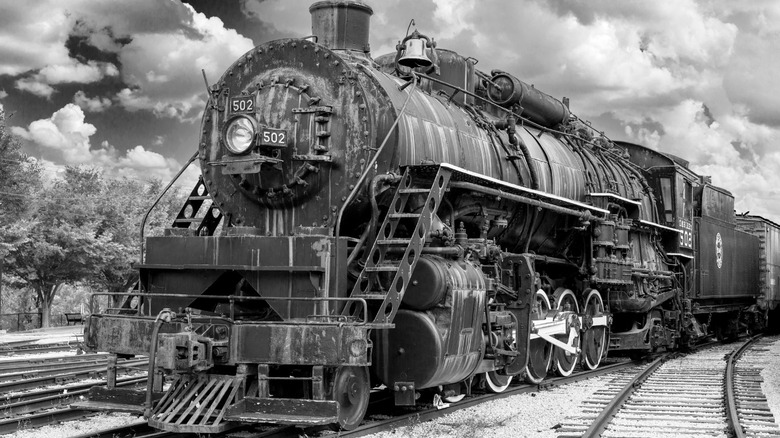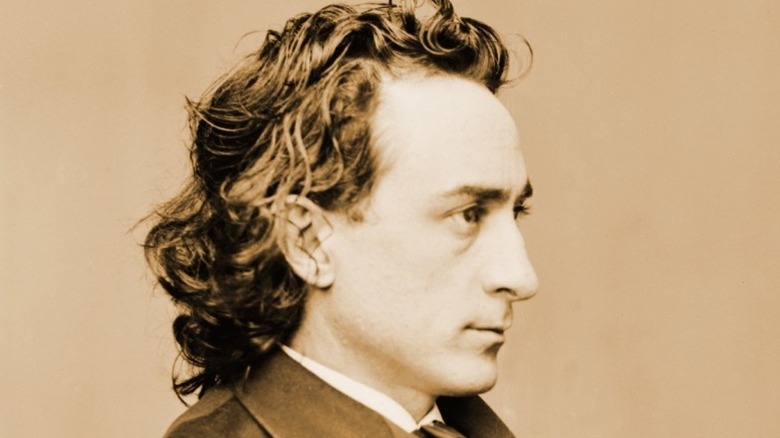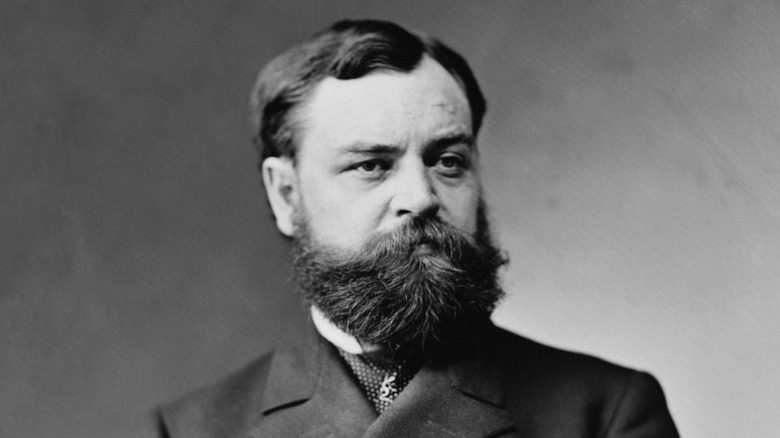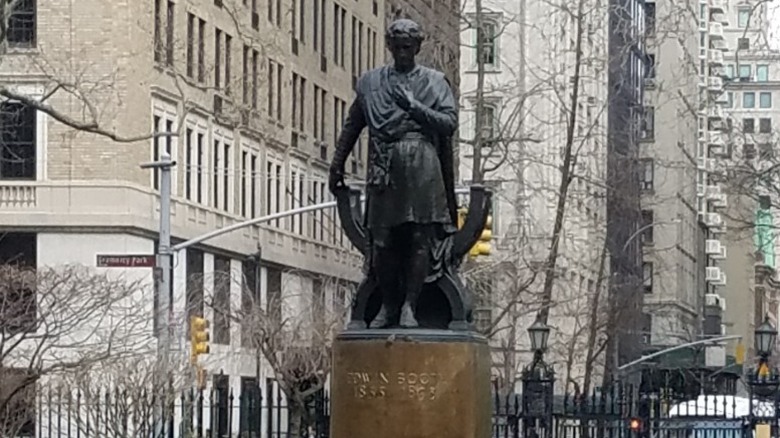How John Wilkes Booth's Brother Saved Abraham Lincoln's Son
When hearing the name "Booth" as it relates to U.S. history, one person comes to mind: the notorious John Wilkes Booth. According to Britannica, Booth assassinated President Abraham Lincoln on April 14, 1865. What has been overshadowed by this dastardly act is the fact that Booth came from a pretty well-respected family, several members of which were household names in the middle of the 19th century.
Family fame aside, one brother of this villain engaged in an act of heroism that saved the life of the son of a sitting U.S. president. The story that has been told time and time again was that Booth's actor brother, Edwin, kept President Lincoln's son Robert Todd from being crushed to death on a set of train tracks. Upon first hearing it, you might think that the brother of the man who would later murder President Lincoln was responsible for saving the life of Lincoln's son is a fantastic tale that was contrived in someone's wild imagination. But is there any truth to it?
Booth's version of events
While it sounds like the stuff that urban legends are made of, this tale of heroism is true.
In a letter he wrote to a friend in 1893, Edwin Booth recalled the entire incident. Civil War Saga states that in late 1864, Booth was traveling by train from Philadelphia to New York City. When the train stopped in Jersey City, NJ, Booth was standing on a platform of the motionless train. Just before the train was scheduled to move out of the station, a young man that was traveling between railcars stumbled next to him. Right in front of Booth's eyes, the man began to drop in between the two railcars. Acting swiftly, Booth reached out and grabbed the man by his topcoat and prevented him from becoming trapped.
After the tripping traveler righted himself, he extended his hand to the man who saved him. "That was a narrow escape, Mr. Booth," he said before thanking him and going on his way. Booth also wrote that two weeks after this incident, he received a letter in the mail from General Adam Badeau. According to the Ridgewood Historical Society, Badeau knew Booth quite well, for the general was a theater critic prior to the outbreak of the Civil War and had met Booth while on assignment. In Badeau's letter, he referenced the incident on the train and pointed out to Booth that the life he saved from being crushed by two train cars was none other than the son of President Lincoln, Robert Todd Lincoln.
The story according to Lincoln
Later in his own life, Robert Todd Lincoln gave his own version of the events on that fateful day. In a letter to Century Magazine in 1909, Lincoln wrote that he was caught in a small crowd of people on the platform who were all trying to buy sleeper car tickets from a nearby conductor. Lincoln found his body pressed by the throng of people against the body of the railcar as he waited to get his own ticket.
This is where Lincoln's version of events varies a bit from Booth's. Lincoln stated that the train began to move, the motion of which made his feet twist and drop in between the cars. Luckily, he was quickly snatched up by Booth, who pulled him to safety. Lincoln was righted on secure footing back on the train's platform before he turned to look at the person who rescued him. He immediately recognized the man who yanked him by his coat collar to safety as Edwin Booth.
In both men's stories, they mention Lincoln knowing who Booth was and even thanking him by name. How were these two men acquainted with each other?
Escaping the infamy of the family name
In the times before television and film, the stage was the place where actors became household names. Edwin Booth came from a family of entertainers, having a father who was a trained Shakespearean actor and two siblings that made a living acting, including his brother, the assassin John Wilkes Booth (via History). Booth himself was the most famous of his acting family, and followed in his father's footsteps as one of the definitive Shakespearean actors of his time. So, it's no surprise that Lincoln immediately recognized his rescuer on the train platform.
For obvious reasons, Booth took some time away from the public spotlight after April 1865. But when he returned to the stage a year later, the theater crowds of New York City embraced him once again. According to History, Booth built the Booth Theatre, which opened in 1869. According to the National Theatre Conference, he went on to establish a private club for performers and patrons of the arts, called The Players Club, in 1889. This social club attracted such names from Booth's era as Mark Twain and Nikola Tesla and is still in operation in its original location in Gramercy Park today.
Booth was held in such high regard that funds were raised after his death to erect a statue in his honor. The statue was unveiled in 1916 and is of Booth playing his most famous role as Hamlet. It still stands today in the courtyard of Gramercy Park in front of Booth's Players Club.



